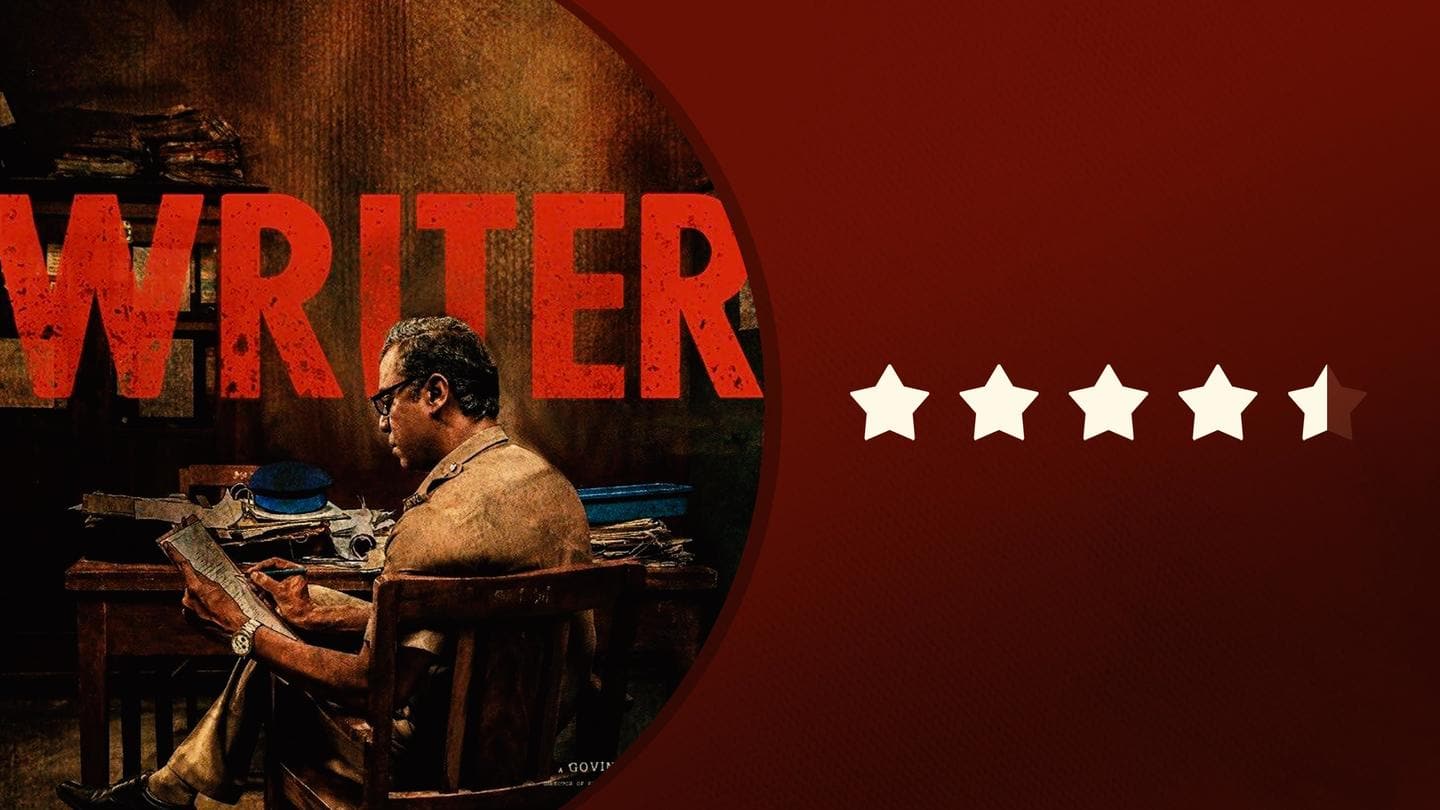
'Writer' movie review: Important take on power audacity, caste discrimination
What's the story
Tamil cinema is witnessing a new wave of films that are crafted on hard hitting stories about caste discrimination and oppression.
In the latest film Writer, debutant director Franklin Jacob deals with this topic firmly and has presented the flick in a subtle yet powerful way.
Ace filmmaker Pa Ranjith has bankrolled the film under his Neelam Productions.
Here is our review.
Introduction
Samuthirakani comes as a cop with an ideology
Writer starts with the story of a policeman— Thangavel (played by Samuthirakani), who is about to retire.
He is humble and treats everyone with respect no matter their position. But his ideologies are colossal.
Being in service for decades, his agenda is to start a police union before his retirement and address the issues (long, stressful working hours, weekly offs, etc) that they face.
Plot
Basis: Tamil Nadu witnessed a steep increase in cop suicides
The film might have taken inspiration from the tragic fact that Tamil Nadu witnessed a steep increase in the number of suicides by cops.
In 2018, the state had the highest number of such cases.
Coming back to the story, Thangavel is a writer in a rural police station, who gets transferred to Chennai as a "punishment" for trying to start a police union.
Story
Harikrishnan Anbudurai, as PhD aspirant, has delivered a brilliant performance
On the first day of his job in Chennai, Thangavel gets to be in charge of an accused named Devaraj (Harikrishnan Anbudurai).
Though not a criminal, the PhD-aspirant gets framed nonetheless.
During police interrogations, his only response is, "I came to Chennai to study. Let me study."
This implies how a person from oppressed community has to fight even to fulfill her/his basic rights.
Dialogues
Fierce dialogues convey the tone of this film
The dialogues have played a huge role in helping the film narrate its rebellious plotline.
Dialogues like, "Saani aldradhu kevalam illa. Aana nee saani thnan allanum nu sonna, kekka maaten da (There's nothing wrong in cleaning horse dung for a living. But if you tell me I should do ONLY that, I will question you)," set the tone for the rest of the film.
Significance
Film questions unfair practices that have been normalized
Jacob has questioned a number of practices that have become normal.
Why can't an oppressed person live in Melatheru (suggestive upper caste dwelling)? Why can't a woman who is not from raja parambarai (subtle note of upper caste) aspire to become a horse rider?
The film's soundtrack by Govind Vasantha had made the audience tear up at a certain point. What a tremendous job!
Verdict
A hard-hitting conclusion that will haunt you for days
Writer finishes off with two wonderful notes— When Thangavel tells his son that education is the most important of all, and when he sought forgiveness from Devaraj's brother (We are refraining from revealing why).
It also conveys a haunting message that an underprivileged family's fight for education gets pushed by a whole generation because of merciless powerful people.
Verdict: Film bags 4.5 stars.